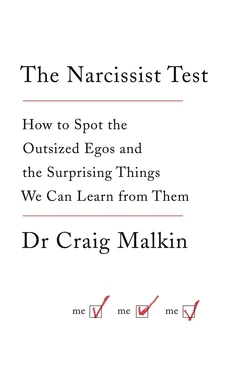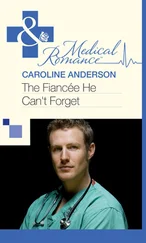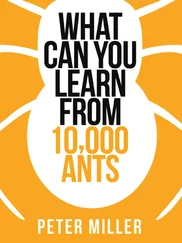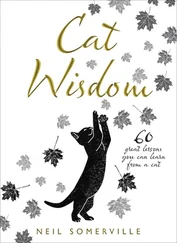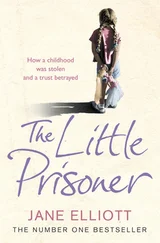She stayed in a nearby hotel that first night, rolling up in a taxi the next afternoon to meet us at the apartment. We resumed unpacking, mostly in silence and mostly without her help. Before long, my mother disappeared in a taxi again, this time to drop exorbitant sums on “decorations.”
It went on that way for a week—my mother staying nights in a hotel, shopping by day—until late one evening, she announced, with an exaggerated sigh, “I need to get comfortable!” She disappeared into the bedroom where we heard her rustling through boxes. Moments later, she reappeared wearing four-inch stilettos—Manolo Blahniks, she proudly informed us. “There,” she said, sighing, “I can relax now. At least my shoes are better than this place.” The shoes, apparently, made her feel special.
That’s when it hit me. My mother used feeling special as a crutch—something to prop herself up when she felt scared or sad or lonely. Instead of turning to me, my brother, Jennifer—or anyone—to talk about how frightened she was about living alone, she relied on feeling better than other people. (In her Manolos, she literally was above most people.) It hadn’t been so necessary to make herself feel special when she was younger—others did the job with their attention and compliments. But as she aged and her looks—the source of much of her confidence—faded, she grew to believe that she had very little to offer and she withdrew from social and civic life. She had to find another way to stand out and prove to herself that she was special.
Thinking of narcissism this way—as a habit people use to comfort themselves—showed me a much clearer, simpler path to coping with my mother. I could see what made her narcissism rise and fall. I could see how and why it became destructive. I could even see how to help her to set it aside and talk honestly about her pain.
My search to understand my mother led me to another epiphany as well: narcissism isn’t all bad. In fact, some narcissism is good—even vital—for us to lead happy, fulfilled, and productive lives. Feeling special, I’ve discovered, can make us better lovers and partners, courageous leaders, and intrepid explorers. It can make us more creative, and it might even help us live longer.
Numerous studies confirmed much of what I’d seen growing up. The traits I so admired in my mother when she was young—her warmth, optimism, and activism—were fueled in great part by her narcissism. Her sense that she was special gave her conviction, confidence, and courage. It allowed her to believe that she had wisdom to effect change in the world, the ability to pull off just about anything she set her mind to, and the nerve to go ahead and try. Narcissism was her launching pad. It made her an engaged parent and energetic community leader. And it made her believe not just in herself but in others as well—and they felt that assurance.
When I was seven, I remember her talking to a despairing shop owner who was very close to shutting his doors. “We need you,” she said, beaming. “I need you. Where else would I get such perfectly delicious food and brilliant conversation?” Her lips formed an exaggerated pout. “That’s it!” she said, stamping her foot. “You cahhhhn’t leave—I won’t have it!” Munching on cookies, I watched the man’s face go from crestfallen to triumphant. Such was the power of my mother; she felt special and she made others feel special, too. The man’s store stayed open well into my college years.
That feeling special can be good as well as bad is just one of the startling findings I unearthed while exploring the mystery of narcissism. In the following pages you’ll discover many other truths that challenge accepted wisdom. In reaching my conclusions, I’ve drawn from a wealth of research, much of it conducted during the past few years. I’ve also drawn on my experience as a clinician working with individuals and couples to provide vivid examples of narcissism at its worst, its best, and in all its subtleties. (All the examples are composites of people I’ve counseled; identifying information has been changed to protect people’s privacy.)
My goal in writing this book is to help you not only understand and cope with the people around you—those you live and work with—but also to better understand yourself. My explorations certainly did that for me.
Like many children of narcissists, while growing up and through my teen years, I didn’t allow myself to feel special at all. I was terrified of even trying. I shrank from compliments or dismissed them. No matter what I accomplished, it wasn’t good enough.
Later as a young adult struggling to find my voice, I swung in the opposite direction, dominating conversations with one too many jokes or tall tales, all in an effort to prove I had something interesting to say. What I eventually realized is that neither stance—constant self-doubt or continuous bravado—made for a very fulfilling life; they both left me feeling lonely and misunderstood.
Luckily, I’ve been able to change and find a rewarding balance. And I’ve helped many others do the same. As a therapist, I am a firm believer that growth is possible, for everyone, whether we harbor too little narcissism or too much. And happily, the evidence, as you’ll see, supports that conclusion.
Years after I started researching this book, in the midst of a particularly blistering summer, my mother passed away. My brother and I were at her side. By that time, I had come to see her narcissism in a different, more nuanced light. Without that new perspective, I’m certain I wouldn’t have been able to say goodbye to her with love in my heart.
My aim in sharing the insights you’re about to discover is to bring the same clarity and hope to your life that I found in my own.
May this book help you overcome the bad—and embrace the good—about feeling special.
The Myth of Narcissus Contents Cover Title Page Copyright Dedication For Julie Malkin Introduction The Myth of Narcissus PART I: WHAT IS NARCISSISM? 1 Rethinking Narcissism: Old Assumptions, New Ideas 2 Confusion and Controversy: How Narcissism Became a Dirty Word and We Found an Epidemic 3 From 0 to 10: Understanding the Spectrum 4 The Narcissism Test: How Narcissistic Are You? PART II: ORIGINS: HEALTHY AND UNHEALTHY NARCISSISM 5 Root Causes: The Making of Echoists and Narcissists 6 Echoism and Narcissism: From Bad to Worse PART III: RECOGNIZING AND COPING WITH UNHEALTHY NARCISSISM 7 Warning Signs: Staying Alert for Narcissists 8 Change and Recovery: Dealing with Lovers, Family, and Friends 9 Coping and Thriving: Dealing with Colleagues and Bosses PART IV: PROMOTING HEALTHY NARCISSISM 10 Advice for Parents: Raising a Confident, Caring Child 11 SoWe: The Healthy Use of Social Media 12 A Passionate Life: The Ultimate Gift of Healthy Narcissism Resources References List of Searchable Terms Acknowledgments About the Author About the Publisher

Long ago in Ancient Greece there lived a boy, Narcissus, the son of the river god Cephissus and the fountain nymph Liriope. His divine origin had blessed him with equally divine looks. With wavy locks tumbling over his forehead and a body sculpted by years of climbing trees and scrambling over rocks hunting for deer and birds, Narcissus quickly amassed an army of admirers.
People everywhere—young and old, men and women—fell for him almost instantly. Soon his reputation reached beyond the human world. Anytime he wandered through the thick forests or along the rippling rivers near his home, Narcissus inevitably drew a crowd of tree or water nymphs eager to catch a glimpse of him.
Читать дальше
